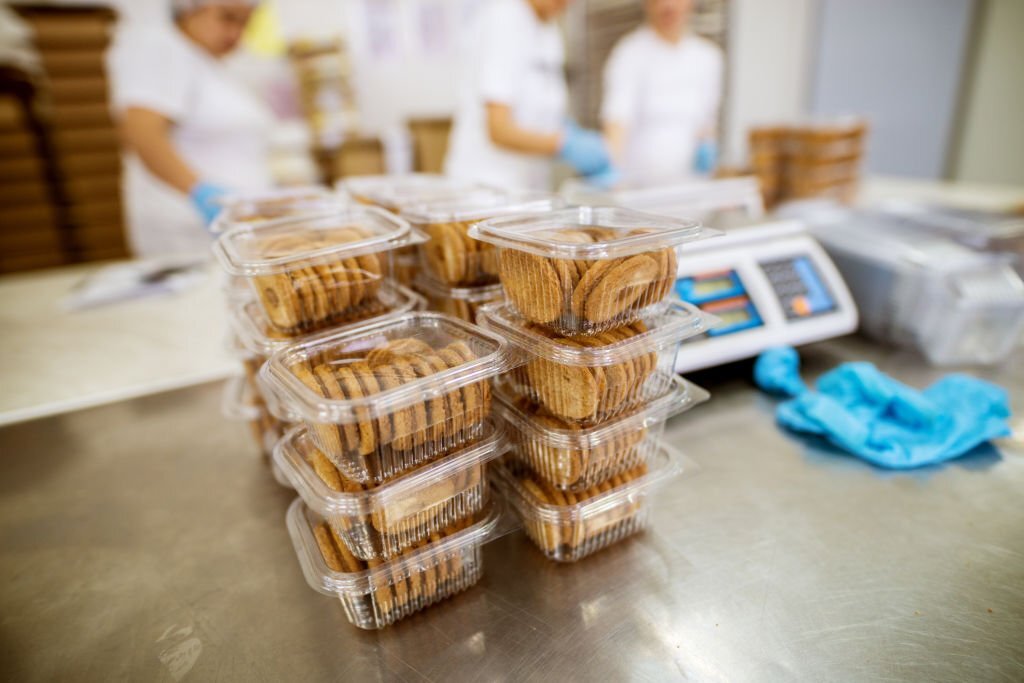Introduction
The cookie business industry is a highly competitive and lucrative market. With the rise of online shopping and the increasing demand for artisanal and gourmet products, starting a cookie business can be a profitable venture. However, it is important to have a guide to starting a cookie business to ensure that you have a clear understanding of the industry landscape, legal and financial considerations, branding and marketing strategies, and other essential factors that can make or break your business.

Understanding the Cookie Business Landscape: Market Research and Analysis
Before starting a cookie business, it is important to conduct market research to identify your target audience and competition. This will help you determine the demand for your products and the level of competition in your area. You can use various tools such as surveys, focus groups, and online research to gather information about your target market and competitors.
Analyzing industry trends and consumer preferences is also crucial in developing a successful cookie business. You need to stay up-to-date with the latest trends in the industry and understand what your customers want. For example, if there is a growing demand for gluten-free or vegan products, you may want to consider incorporating these options into your product line.
Developing a Winning Cookie Recipe: Tips and Tricks from the Pros
Developing a winning cookie recipe is the heart of your business. Experimenting with different ingredients and flavors is key to creating a unique and delicious product. You can also perfect the baking process by testing different baking times and temperatures to achieve the perfect texture and consistency.
Incorporating unique and innovative elements into your cookies can also set you apart from the competition. For example, you can add unexpected ingredients such as bacon or lavender to create a unique flavor profile. You can also experiment with different shapes and sizes to make your cookies more visually appealing.

Setting Up Your Cookie Business: Legal and Financial Considerations
Setting up your cookie business involves several legal and financial considerations. You need to register your business and obtain the necessary licenses and permits to operate legally. You also need to create a business plan and secure funding to cover startup costs such as equipment, ingredients, and marketing expenses.
Understanding tax and accounting requirements is also important to ensure that you are compliant with local and federal regulations. You may want to consult with a lawyer or accountant to help you navigate these complex legal and financial issues.
Branding and Marketing Your Cookie Business: Building a Strong Online Presence
Branding and marketing are essential to building a successful cookie business. Creating a brand identity and logo can help you stand out from the competition and attract customers. Developing a website and social media presence can also help you reach your target audience and build a loyal customer base.
Utilizing digital marketing strategies such as search engine optimization (SEO), email marketing, and social media advertising can also help you increase your online visibility and drive traffic to your website. You can also offer promotions and discounts to incentivize customers to try your products and build brand loyalty.
Finding the Right Suppliers: Sourcing High-Quality Ingredients and Packaging
Finding the right suppliers is crucial to ensuring the quality and consistency of your products. You need to identify reliable and reputable suppliers who can provide high-quality ingredients and packaging at a reasonable price. Negotiating prices and terms can also help you save money and improve your profit margins.
Ensuring quality and consistency of ingredients and packaging is also important to maintain the integrity of your brand. You may want to conduct regular quality control checks to ensure that your products meet your standards and exceed customer expectations.
Creating a Pricing Strategy: Maximizing Profit Margins without Compromising Quality
Creating a pricing strategy is important to maximize your profit margins without compromising the quality of your products. You need to calculate your costs and determine a pricing structure that covers your expenses and generates a profit. Offering promotions and discounts can also help you attract customers and increase sales.
Monitoring and adjusting prices as needed is also important to stay competitive and adapt to changes in the market. You may want to conduct regular price comparisons with your competitors and adjust your prices accordingly.
Building a Strong Team: Hiring and Training Employees for Success
Building a strong team is important to ensure the success of your cookie business. You need to identify necessary roles and responsibilities and recruit and hire qualified employees who can help you achieve your goals. Providing training and ongoing support can also help you develop a skilled and motivated team.
Creating a positive work environment and fostering a culture of teamwork and collaboration can also help you retain employees and reduce turnover. You may want to offer incentives such as bonuses or flexible schedules to reward and motivate your employees.
Managing Your Inventory: Tracking Sales and Stock Levels for Optimal Efficiency
Managing your inventory is important to ensure optimal efficiency and profitability. Implementing inventory management systems can help you track sales and stock levels and adjust production and order as needed. You may want to use software or other tools to automate this process and reduce the risk of errors.
Monitoring sales and stock levels can also help you identify trends and adjust your product line accordingly. For example, if a particular product is selling well, you may want to increase production to meet demand.
Expanding Your Cookie Business: Scaling Up Production and Diversifying Your Product Line
Expanding your cookie business is important to achieve long-term growth and profitability. You need to identify opportunities for growth and expansion and increase production capacity to meet demand. Introducing new products and flavors can also help you attract new customers and retain existing ones.
However, it is important to do this gradually and ensure that you maintain the quality and consistency of your products. You may want to conduct market research and test new products before introducing them to your customers.
Staying Ahead of the Competition: Innovating and Adapting to Changing Market Trends
Staying ahead of the competition is important to maintain your competitive edge and adapt to changing market trends. Keeping up with industry trends and consumer preferences can help you identify new opportunities and stay relevant. Continuously improving products and processes can also help you maintain the quality and consistency of your products.
Adapting to changes in the market and competition is also important to stay competitive and maintain your market share. You may want to conduct regular market research and adjust your strategies accordingly.
Conclusion
Starting a successful cookie business requires careful planning and execution. By understanding the industry landscape, developing a winning recipe, setting up your business, branding and marketing your products, finding the right suppliers, creating a pricing strategy, building a strong team, managing your inventory, expanding your business, and staying ahead of the competition, you can achieve your goals and build a profitable and sustainable business.



